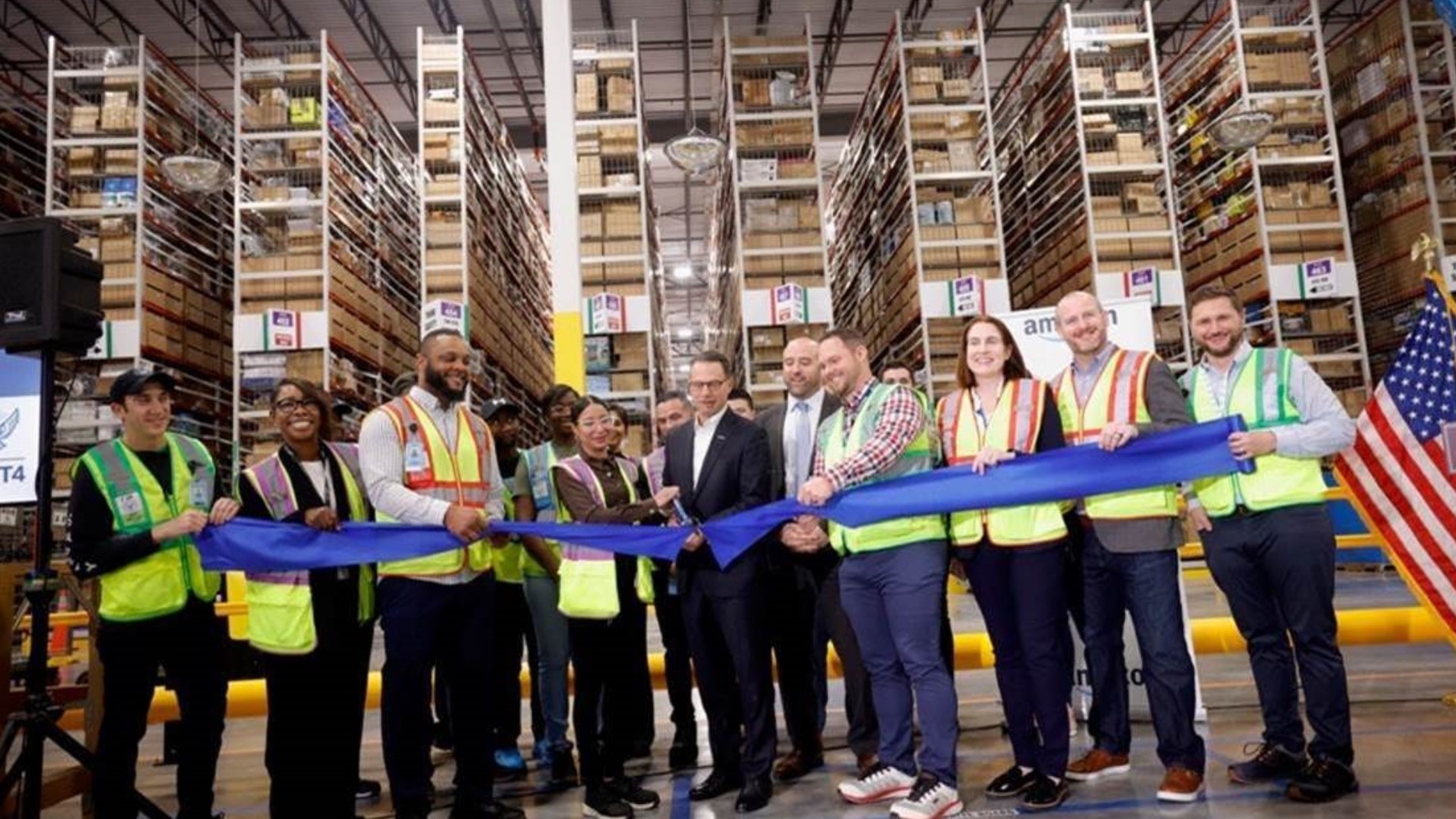YORK COUNTY, Pa. — Governor Josh Shapiro celebrated the opening of a brand new 1.2 million square foot Amazon fulfillment center in York Tuesday morning.
The new center joins nearly 40 other Amazon operations facilities across the Commonwealth. Although the facility has been operating since June, Tuesday marked the grand opening.
“By opening this new facility, Amazon is investing in the future of the Commonwealth of Pennsylvania and building on their already extensive presence here. Today, we’re cutting the ribbon on the latest addition to that impressive footprint – a brand-new 1.2 million square foot fulfillment center that has already created over 1,000 jobs right here in south-central Pennsylvania,” said Governor Josh Shapiro.
Since 2010, Amazon has reportedly invested more than $21.6 billion in Pennsylvania, including infrastructure and compensation to employees and has created more than 25,000 direct jobs.
“While this site began operations only a few months ago, we already have over 1,000 employees and will continue to hire so we can deliver smiles this holiday season,” said Steve Washenko, Amazon's site leader.
The new Amazon facility represents a growing trend of warehouses popping up across central Pa. For most, tractor-trailers leaving nearby fulfillment centers have become a common sight across the Commonwealth.
“This is part of building a 21st-century economy," said Alex Halper, the vice president of government affairs with the Pennsylvania Chamber of Commerce.
Halper said the warehouses not only bring jobs in the new facilities, they also enhance other businesses across Pennsylvania.
“It’s this type of network, including fulfillment centers, that allows small businesses here in Pennsylvania to think bigger and broader about their customers," said Halper.
However, the trend of new warehouses has not been universally accepted.
Lettice Brown, who formed a Facebook group to protest a warehouse project next to Prospect Hill Cemetery, said many people worry about large warehouses taking away greenspace and causing more traffic.
“We want to be economically aware, as well as morally aware of where we’re placing these things," said Brown.

